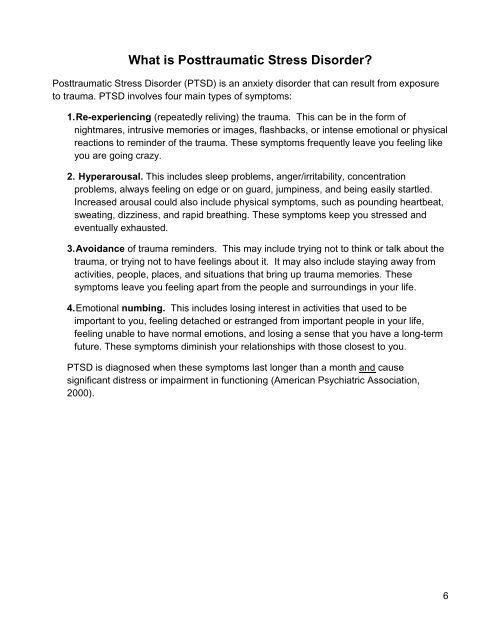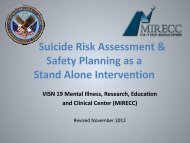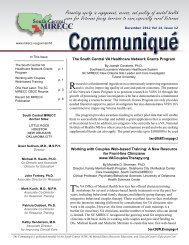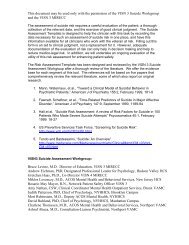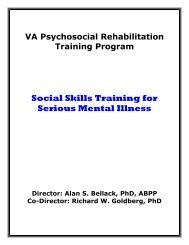PTSD Recovery Group-Client Manual
PTSD Recovery Group-Client Manual
PTSD Recovery Group-Client Manual
You also want an ePaper? Increase the reach of your titles
YUMPU automatically turns print PDFs into web optimized ePapers that Google loves.
What is Posttraumatic Stress Disorder?<br />
Posttraumatic Stress Disorder (<strong>PTSD</strong>) is an anxiety disorder that can result from exposure<br />
to trauma. <strong>PTSD</strong> involves four main types of symptoms:<br />
1. Re-experiencing (repeatedly reliving) the trauma. This can be in the form of<br />
nightmares, intrusive memories or images, flashbacks, or intense emotional or physical<br />
reactions to reminder of the trauma. These symptoms frequently leave you feeling like<br />
you are going crazy.<br />
2. Hyperarousal. This includes sleep problems, anger/irritability, concentration<br />
problems, always feeling on edge or on guard, jumpiness, and being easily startled.<br />
Increased arousal could also include physical symptoms, such as pounding heartbeat,<br />
sweating, dizziness, and rapid breathing. These symptoms keep you stressed and<br />
eventually exhausted.<br />
3. Avoidance of trauma reminders. This may include trying not to think or talk about the<br />
trauma, or trying not to have feelings about it. It may also include staying away from<br />
activities, people, places, and situations that bring up trauma memories. These<br />
symptoms leave you feeling apart from the people and surroundings in your life.<br />
4. Emotional numbing. This includes losing interest in activities that used to be<br />
important to you, feeling detached or estranged from important people in your life,<br />
feeling unable to have normal emotions, and losing a sense that you have a long-term<br />
future. These symptoms diminish your relationships with those closest to you.<br />
<strong>PTSD</strong> is diagnosed when these symptoms last longer than a month and cause<br />
significant distress or impairment in functioning (American Psychiatric Association,<br />
2000).<br />
6


